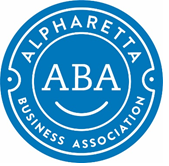
Is your team stuck reinventing the wheel? It may be time to create a smarter way to share what you already know.
Every small business runs on shared knowledge — how things operate, what’s been tested, and what truly delivers. When that knowledge isn’t captured, mistakes repeat and progress slows.
Inefficient knowledge sharing impacts businesses across the board, costing large businesses an average of $47 billion annually.
Smart knowledge management strategies (KMS) can help solve this problem. The right IT solutions keep your team aligned, speed things up, and stop repeat work before it starts.
10 Knowledge Management Strategies for Small Businesses
-
Start with the Right Questions
Before jumping into solutions, pause and ask: What knowledge keeps slipping through the cracks? You might see signs like long onboarding times, repeated questions, missed steps, or customers needing extra support. Ask each department what info they can’t access but wish they could. Those gaps are your starting points.
-
Pick the Right Tool (Not the Flashiest One)
Wikis, folders, or messaging apps can all work as a knowledge base. The important things are simplicity, searchability, and easy access. Build on tools your team already knows instead of forcing something entirely new. Choose IT solutions that grow with you without adding complexity.
-
Keep It Organized and Logical
Once you have a home for knowledge, focus on structure. People should find what they need in a few clicks or a short search. Common categories:
-
How we work: company policies, remote work rules, expense processes
-
Processes: sales scripts, order workflows, client onboarding steps
-
Quick help: login instructions, troubleshooting, how to use software
-
Team resources: training materials, meeting templates, contact details
Use broad categories and keyword tags. Structure early — it pays off as the library grows.
-
Create Content That’s Actually Helpful
People want quick, clear answers that solve problems. Keep entries concise and add visuals or step-by-step instructions when they help.
-
Separate Internal and External Knowledge
Keep internal items (like hiring workflows) private and publish customer-facing resources externally. External content could include product how-tos, feature overviews, FAQs, support docs, and setup tutorials. Done right, this reduces support requests and empowers customers. Internal and external hubs should both be maintained, but kept separate.
-
Assign Ownership
Knowledge hubs fail when no one keeps them up to date. Appoint a “knowledge champion” or small team to: encourage contributions, review clarity, update outdated info, and archive irrelevant entries. Quarterly audits work well. If you work with an IT partner, they can help automate review cycles.
-
Make Contributing Simple
When someone figures out a better way, it should be easy to share. Use templates for new entries, allow suggested edits, offer a “request a guide” form, and recognize contributors publicly. If someone can’t write, have them explain the process on a call while someone else documents it.
-
Integrate It into Daily Work
Your hub should be used, not hidden. Reference it in team meetings, onboarding, and tasks. The more it’s part of day-to-day work, the more valuable it becomes.
-
Track What’s Working
A KMS should evolve based on usage. Track most-viewed articles, common searches, and repeated support questions. Use built-in analytics if available — if not, ask your team for feedback.
-
Celebrate the Wins
Every time someone finds an answer in the hub instead of asking around, you save time. Call out wins like: “This article prevented five support tickets this week,” “New hires finished onboarding three days faster,” or “Josh wrote the most-used Sales guide.” Small wins build momentum.
How Forward Systems Helps
Here at Forward Systems, we specialize in helping small businesses build smart, scalable knowledge hubs. We take your most-frequent questions, streamline onboarding, and integrate the knowledge base into everyday workflows so answers are easy to find and use.
Build a Knowledge Hub Your Team Will Actually Use
A knowledge hub doesn’t just save time — it helps teams work smarter, improves collaboration, and simplifies onboarding. Customers benefit too, with faster support and clearer self-service. Start small, with a handful of useful entries, and let the hub grow with your business.
Need help getting started? We’ll recommend the right tools, set up the hub, and make sure it’s easy to maintain so your team always has the answers they need.
Article used with permission from The Technology Press.











